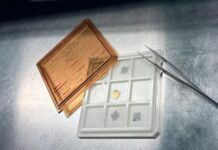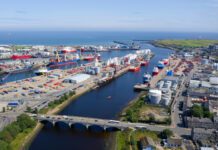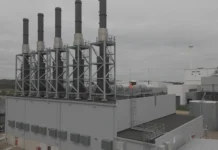
The global pipeline for hydrogen electrolyser projects has surged by a staggering 55.2 GW in six months, as reported in the latest Q2 2024 European Hydrogen Market Report (HyMaR) by power market analytics provider Aurora Energy Research. The global electrolyser database now stands at approximately 1.2 TW, marking a notable 4% increase in the last six months and equating to a substantial 5.5 PWh of electricity.
Most projects (90%) are still in early phases, according to Aurora. The total operational capacity of existing projects is nearing 2 GW (1,923 MW), showing a growth of 1,133 MW. About 130–140 GW of more advanced projects are also in the works, highlighting their substantial scale. Europe leads in project development, making up 32% of the capacity share, the report finds, followed closely by Oceania at 21% in different operational or development stages. The projects involving Final Investment Decisions (FIDs) amount to approximately 15 GW, about 12% of the global operational or under-construction capacity.
Given its large market size and advanced policy framework, especially with the 2023 update to its 2020 hydrogen strategy, Germany leads in electrolyser project development in Europe, with about 9 GW in advanced stages. Following closely are the Netherlands and the UK, making up the top three most attractive markets in Europe with similar drivers. While Europe remains a hotspot, projects are showing global momentum, Aurora assesses.
Aurora further projects a significant role for electrolysers in European hydrogen production. By 2030, electrolysers are expected to make up over 50% of the total capacity mix, growing to 80% by 2040. However, by 2030, installed electrolyser capacity is expected to reach 35 GW, falling short of targets set by the EC’s Net Zero Industry Act and REpowerEU by 76%. This shortfall is attributed to high electrolysers’ CAPEX, rising cost of capital and, and uncertainty in offtake agreements, delaying project investment decisions.
In terms of hydrogen production costs, the report identifies considerable variation across European countries, ranging from 4–20 €/kg. The Nordics and Spain stand out for offering the most cost-effective hydrogen, with Spain’s baseload production helping to offset intermittent cost increases by 2–3 times.
Dilara Caglayan, Research Lead at Aurora Energy Research, comments:
“The positive impact of clearer policy frameworks and support schemes is evident in electrolyser projects globally, with new projects as well as some of the existing ones reaching a Final Investment Decision (FID). However, further cooperation still remains a prerequisite for the realisation of national targets and the successful rollout of a future hydrogen market.”
The Q2 2024 European Hydrogen Market Report (HyMaR) is available now







